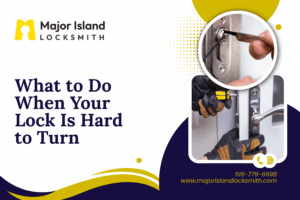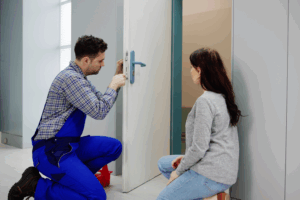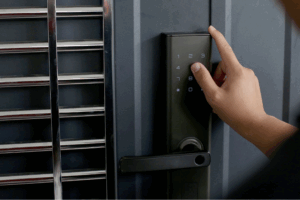In the quest for optimal home security, choosing the right locking system is crucial. As technology advances, homeowners now have a choice between traditional locks and smart locks. Each option has its own set of advantages and potential drawbacks. In this blog, we will explore the differences between smart locks and traditional locks to help you decide which is better for your home.
Understanding Home Locks: Traditional vs. Smart
Traditional Locks
Traditional locks have been the cornerstone of home security for centuries. These locks typically consist of a mechanical system that requires a physical key to operate. Common types include deadbolts, padlocks, and knob locks.
Advantages of Traditional Locks
1. Simplicity: Traditional locks are straightforward and easy to use.
2. Reliability: With fewer electronic components, traditional locks are less likely to malfunction.
3. Cost-Effective: Generally, traditional locks are more affordable compared to smart locks.
4. Compatibility: Traditional locks can be installed on almost any door without the need for additional infrastructure.
Disadvantages of Traditional Locks
1. Key Management: Physical keys can be lost, stolen, or duplicated.
2. Limited Features: Traditional locks do not offer remote access or advanced security features.
3. Manual Operation: They require manual locking and unlocking, which can be inconvenient.
Smart Locks
Smart locks represent the modern evolution of home locks, integrating technology to offer enhanced security and convenience. These locks can be operated via smartphones, keypads, biometrics, or even voice commands.
Advantages of Smart Locks
1. Convenience: Smart locks allow for keyless entry, which can be more convenient for busy households.
2. Remote Access: Homeowners can control and monitor their locks remotely via a smartphone app.
3. Advanced Security Features: Many smart locks offer features like auto-locking, activity logs, and integration with home security systems.
4. Customization: Access can be easily granted or revoked, and temporary codes can be issued to guests or service providers.
Disadvantages of Smart Locks
1. Cost: Smart locks are generally more expensive than traditional locks.
2. Dependency on Technology: They rely on electronic components, which can fail or be hacked.
3. Battery Life: Smart locks require batteries, which need regular replacement or charging.
4. Compatibility Issues: Not all doors are suitable for smart lock installation without modifications.
Comparing Home Locks: Key Factors to Consider
Security
Both traditional and smart locks can provide robust security, but the method of securing the home differs. Traditional locks rely on mechanical strength and the integrity of the lock mechanism. In contrast, smart locks add an extra layer of security with encryption and access logs. Smart locks can notify you of any unauthorized attempts to access your home, providing an additional sense of security.
Convenience
For many homeowners, the convenience offered by smart locks is a significant advantage. The ability to lock and unlock doors remotely, grant temporary access, and receive notifications about entry and exit activities can be highly beneficial. Traditional locks, however, are straightforward and do not require technical know-how. For those who prefer a no-fuss approach to home security, traditional locks may be the better option.
Installation
Traditional locks are typically easier to install, often requiring just a few basic tools. Smart locks may need professional installation, especially if they are part of a more extensive smart home system. Some smart locks also require compatibility with specific door types and sizes. It’s essential to consider the installation process and any additional costs that may come with it.
Cost
Cost is a major consideration when choosing between traditional and smart locks. While traditional locks are generally less expensive, smart locks offer additional features that may justify the higher price for some homeowners. It’s important to weigh the initial investment against the long-term benefits and potential cost savings, such as not needing to replace lost keys.
Maintenance
Traditional locks require minimal maintenance, mainly occasional lubrication. Smart locks, however, need regular battery changes and software updates to ensure they function correctly. Regular maintenance is crucial to prevent any potential security breaches or malfunctions.
The Verdict: Which Home Locks Are Better?
The choice between smart locks and traditional locks ultimately depends on your specific needs, preferences, and budget. Here are some key points to help you decide:
Choose Traditional Locks If:
❖ You prefer simplicity and reliability.
❖ You are on a tight budget.
❖ You do not require remote access or advanced features.
Choose Smart Locks If:
❖ You value convenience and modern technology.
❖ You want the ability to control your locks remotely.
❖ You desire advanced security features and integration with other smart home devices.
Factors Influencing Your Decision
When making a decision, consider the following factors:
❖ Family Lifestyle: For families with young children or elderly members, the ease of use and additional safety features of smart locks can be beneficial.
❖ Property Type: The type of property you own can influence your choice. For example, rental properties might benefit from the flexibility of smart locks, allowing easy reprogramming between tenants.
❖ Frequency of Visitors: If you often have guests or service providers entering your home, the ability to grant temporary access codes with smart locks can be very convenient.
Making the Transition: Tips for Upgrading Your Home Locks
If you decide to upgrade to smart locks, here are some tips to ensure a smooth transition:
1. Research and Compare: Look at different smart lock models and compare their features, prices, and customer reviews.
2. Check Compatibility: Ensure the smart lock you choose is compatible with your door type and existing home security system.
3. Professional Installation: Consider professional installation to avoid potential issues and ensure optimal functionality.
4. Regular Maintenance: Keep track of battery life and perform regular software updates to maintain security and performance.
Additional Considerations for Smart Locks
When choosing a smart lock, consider additional features that may be beneficial:
❖ Integration with Smart Home Systems: Some smart locks can integrate with other smart home devices, such as security cameras and alarm systems, providing a comprehensive home security solution.
❖ Voice Control: If you use a smart home assistant like Amazon Alexa or Google Home, look for smart locks that can be controlled via voice commands.
❖ Geofencing: Some smart locks offer geofencing capabilities, automatically locking or unlocking your door based on your proximity to your home.
Comparison of Features: Traditional Locks vs. Smart Locks
| Feature | Traditional Locks | Smart Locks |
|---|---|---|
| Key Management | Physical keys; can be lost or duplicated | Keyless entry; access via smartphone, keypad, biometrics |
| Security | Mechanical strength; reliable | Encryption, access logs, remote monitoring |
| Convenience | Manual operation; straightforward | Remote access, temporary codes, notifications |
| Cost | Generally more affordable | Higher initial investment; potential long-term benefits |
| Maintenance | Minimal; occasional lubrication | Regular battery changes; software updates |
| Installation | Easy to install; basic tools needed | May require professional installation; compatibility checks |
| Advanced Features | None | Auto-locking, voice control, geofencing, smart home integration |
Conclusion
When it comes to securing your home, both traditional locks and smart locks have their unique advantages. Traditional locks offer simplicity and reliability, while smart locks provide advanced features and convenience. By considering your specific needs and preferences, you can make an informed decision that enhances the security and functionality of your home. Whether you opt for the tried-and-true traditional locks or the cutting-edge smart locks, Major Island Residential locksmiths are here to support you in safeguarding your home. Contact us today for expert advice and professional locksmith services tailored to your needs.
Contact Us
If you need help deciding which home locks are best for your needs or require professional installation, Major Island Locksmith is here to assist. Contact us at info@majorislandlocksmith.com or call 516-779-6698 for expert advice and reliable locksmith services.




